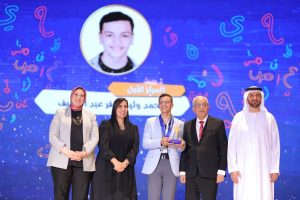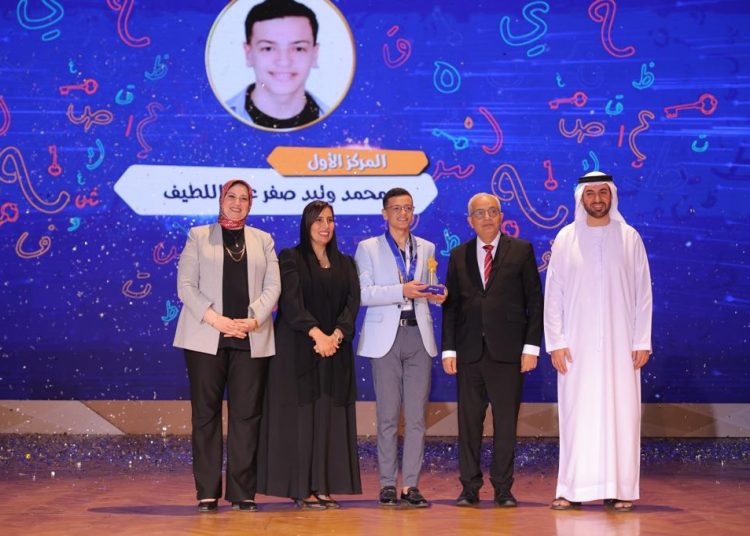By Mohamed Zein Eddin
Minister of Education Reda Hegazy yesterday honoured the winners in the 7th Arab Reading Challenge competition as well as the distinguished supervisors participating in the competition for academic year 2022-2023.
The ceremony was in the presence of Ambassador of the United Arab Emirates to Egypt Maryam Al-Kaabi and Abdel Karim Sultan, executive director of the Mohammed bin Rashid Al-Maktoum Global Initiatives Foundation.
The minister said a record 15.3 million Egyptian students, including 12,000 people of determination, participated in this year’s challenge this year.
He expressed gratitude for efforts by the Central Department for Student Activities and Schools nationwide to encourage students to read.
“The Arab Reading Challenge, launched seven years ago by his Highness Sheikh Mohammed bin Rashid Al-Maktoum, has become a milestone for developing reading and accumulating knowledge. It has also become a great motivation to dive deeper into the beauty of the Arabic language and its vast potential to accommodate modern sciences,” Hegazy said.
“The Arab Reading Challenge was particularly significant this year for many reasons. For the first time ever, the challenge has added a new category for People of Determination to help nurture their potential and enhance their inclusion in the Arab cultural scene and in the community in general,” he added.
The Arab Reading Challenge has become the largest reading project globally, with 24.8 million students from 46 countries participating, Sheikh Mohammed bin Rashid Al-Maktoum tweeted in May this year.

He also announced that the Arab Reading Challenge for 2023 has seen record participation and an 11 per cent increase compared to last year’s numbers. Around 24.8 million students, including over 22,500 people of determination, took part this year.
First launched in the academic year 2015-2016, the Arab Reading Challenge reflects the vision of Sheikh Mohammed and his belief that “reading is the first step towards a better future driven by knowledge and learning”.
The aim of the challenge are to highlight the importance of reading, develop comprehension and self-expression using correct Arabic language, and nurture creative thinking skills to help enrich Arabic content and strengthen the position of Arabic as a language of thought, science, research and creativity that can play a role in cultural dialogue and openness.






Discussion about this post